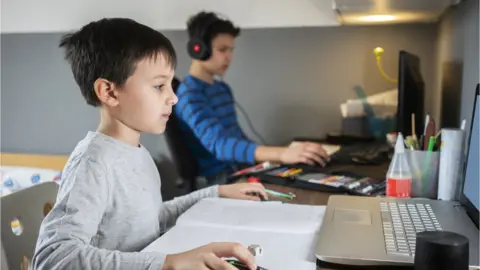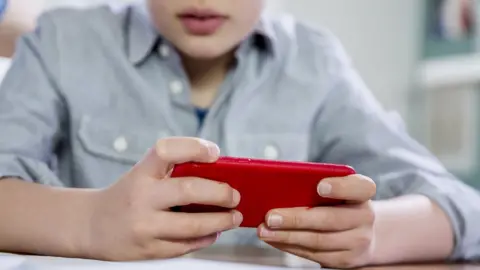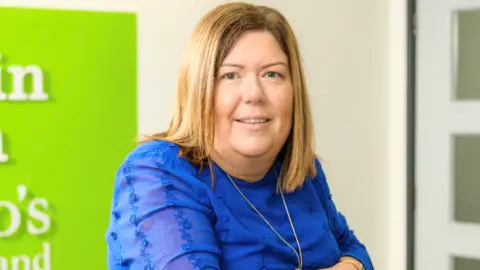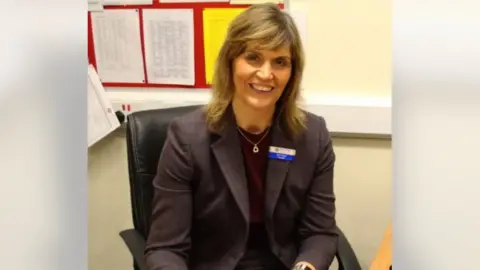Remote learning: What are the challenges presented by at-home learning?
 Vesnaandjic
VesnaandjicBack to school for pupils, this month, has meant back to the laptop. Back to the online Zooms. Back to the kitchen table strewn with exercise books.
With Covid-19 cases surging, students across Northern Ireland are braced once again for a stint of remote learning.
The move is expected to last well into February, with most pupils not returning to classrooms until after the mid-term break.
But keeping children temporarily out of school, and focusing their attentions on laptops, tablets and phones, brings renewed concerns about technology and the digital divide, in which some children do not have easy access to the tools they need.
Since the pandemic began the Education Authority (EA) has loaned more than 11,000 digital devices to pupils in NI, with a procurement process now underway to meet the ongoing demand.
However, the luxury of suitable equipment and a stable internet connection isn't the only challenge that presents itself.
BBC News NI spoke to some of those affected to hear their views.

The parent
Rachel, a single mother-of two from Belfast, became homeless just before the beginning of the first lockdown in March 2020.
She, along with her two sons, found themselves having to live out of a single room in a house.
With all their belongings in storage, the only device her sons were able to use for their school work was Rachel's smartphone.
"We did have internet but it was very slow, it would have cut off a lot of the time," she said.
"Phone signals were awful, you had to go outside."
 Getty Images
Getty ImagesRachel, who is in her 30s, described those months as "difficult and stressful".
"I had pressures on me everywhere, I wasn't just a mum I had to be a teacher as well," she said.
"I'm not skilled in teaching kids, I'm not academic in that way, my work is completely different.
Rachel has now moved into a house with a stable internet connection and, through Barnardo's NI, was supplied with a laptop the boys can use for their schoolwork.
She feels this time around she has more of the resources to cope with remote learning for her sons.
However she believes that at-home learning does not provide equal opportunities for young people.
"I'm sure some kids have mums or dads that are teachers, so they have a better advantage than the other kids," she said.

 Barnardo's NI
Barnardo's NIThe charities
Remote learning is particularly hard for those families who live in "digital poverty", said Michele Janes, head of Barnardo's NI.
"The return to remote learning places a huge amount of pressure on parents and guardians, who may already be dealing with issues like financial strain and job loss.
"It is vital that the funds and resources are in place to support the most vulnerable families."
That view was echoed by Paula Reynolds, chief executive of the Belfast Charitable Society.
Last spring, the society - along with the Halifax Foundation, the National Lottery Community Fund, Ulster University and the Ulster Community Investment Trust - put together funding for 225 laptops to schools in north Belfast.
However the digital divide remains a problem throughout Northern Ireland, she said.
"It's across the board - there are rural issues with no access to broadband and, of course, a digital poverty problem.
"On one level, it is people who are already disadvantaged but there are the new poor who will be coming out of this because of redundancies."
She said the charity was "aware there was a dire need for devices" and that "kids were going home with maybe only a phone, if even".
Ms Reynolds said the laptop project was turned around in two weeks and she was concerned at "how statutory bodies haven't been able to step up to the mark".
She said she felt the Department of Education should "speed up the delivery and provision" of devices.

 Belfast Model School for Girls
Belfast Model School for GirlsThe educators
Whether it's because of digital poverty or different approaches in schools, pupils do not get equal opportunities when learning from home, according to Paula Stuart, principal of Belfast Model School for Girls.
"Schools are doing it in different ways. Staff skills, competence, infrastructure and access to software and hardware is differing right across the province," she said.
Describing the situation in homes, she added: "There's absolute poverty, so no devices available; there could be poverty in terms of the device is shared; or there could be poverty in that the device is not appropriate or suitable for online learning.
"There is poverty of wi-fi. There could be none available, or there could be some available but it's very poor or there could be some but it is intermittent because of the cost implications for families."
There is also "poverty of support available at home for online learning", she said.
"In some families, both parents are working and the child is learning alone at home. Some parents are not in a position to offer that support."
However, amidst this, she said her school is striving to achieve a positive legacy from the pandemic.
"Our teachers and support staff are going to be more competent in using e-learning going into the future," she said.
"We haven't got it perfectly but we've got it and we're going to continue."
For Dr Noel Purdy, director of the Centre for Research in Educational Underachievement (CREU) at Stranmillis University College in Belfast, things have moved on from the first lockdown in March.
He spoke to families at the height of that lockdown - a subsequent report pointed to a feeling of "burn out" amongst parents as well as a "digital divide" amongst children and families.
Dr Purdy said "huge strides have been made" by teachers, particularly regarding their confidence in teaching remotely, but issues remain.
He said that lockdown "exacerbates existing inequities" and that he would still be concerned there will be a "learning gap which disproportionately disadvantages socially-disadvantaged children".

The department
In a statement, the Department of Education said the Education Authority is "continuing to process requests (for laptops) and a procurement process is under way to meet ongoing demand".
It said it had "put in place a range of support for schools in planning for remote learning".
"All schools were asked to have contingency plans in place for the delivery of remote learning in the event of a school closure, or that a class bubble or any larger group of pupils across a year group need to self-isolate," it added.
The department's updated guidance states that it is "conscious that all pupils do not have the same levels of home support nor do all households have the same level of access to resources".
